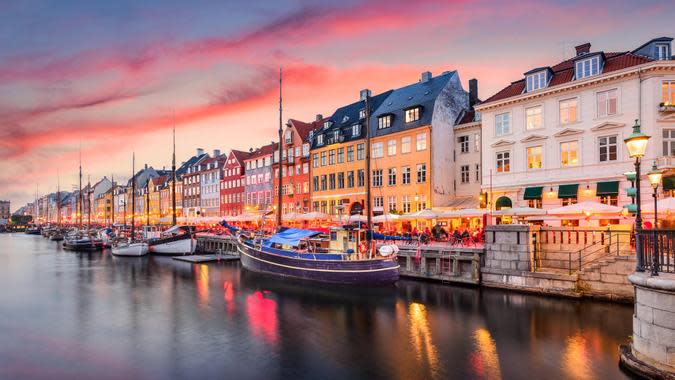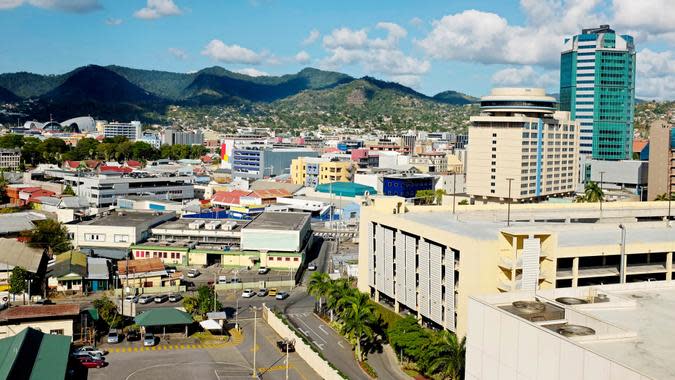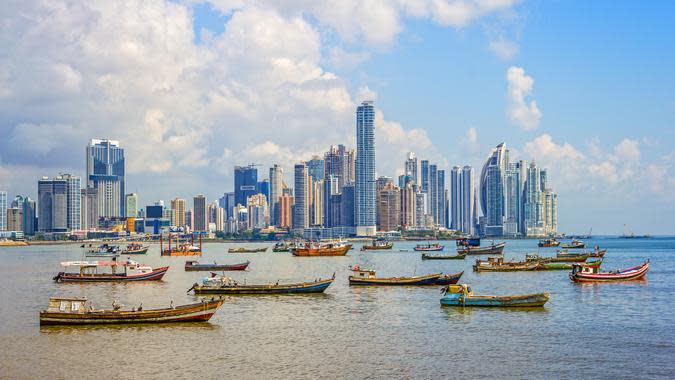Retiring Abroad: Top 10 Countries With the Most Affordable Healthcare

The cost of healthcare is a concern for retirees in the U.S., and rightly so. According to the Fidelity Retiree Health Care Cost Estimate, if you are 65 years old in 2023, you need $157,000 saved to cover healthcare expenses in retirement. A couple can expect to need $315,000 saved. These are after-tax amounts, and they are for costs that Medicare does not cover. This can include co-payments, prescription drug costs, long-term or skilled nursing care, and more.
Florida’s Retirees Are Fleeing: Here’s Where They’re Going Instead
Learn: 10 Reassuring Signs You Won’t Run Out of Money in Retirement
For this reason (among others), some Americans are choosing to retire overseas, where their Social Security checks will go further and they won’t have to pay as much for healthcare. If you’re considering retiring abroad, these are the top 10 countries with the most affordable healthcare.

10. Italy
Italy’s national health service is called the Servizio Sanitario Nazionale and is one of the best in Europe for expats. You must become an Italian national and apply for a health insurance card to use it.
Types of Retirement Plans: How To Choose the Right One for You
Know: 10 Reassuring Signs You Won’t Run Out of Money in Retirement
Private insurance is also available in Italy. Some expats choose this because they will have more doctors and hospitals to choose from and may not have to wait as long to be seen.

9. Brazil
Brazil is known for high-quality care and service and is a destination for those seeking cosmetic and plastic surgery. Expats in Brazil can get healthcare for about 20% less than we pay in the U.S.
Dave Ramsey: Is It Worth Converting Your Traditional 401(k) Into a Roth 401(k)?
Brazil has the Sistems Unico do Saude (SUS), or Single Health System. Under this system, Brazil’s permanent residents have free access to public health services and member private hospitals.

8. Denmark
If you retire to Denmark, you can take advantage of their universal, decentralized healthcare system or choose a private health insurance policy for additional coverage. After staying for six months in Denmark, you can apply for a Central Person Register (CPR) number, and a CPR card, known as a ‘yellow card,’ will be issued to you, which allows you to access the Danish healthcare system.
In Denmark, a primary care doctor (called a general practitioner or GP) will coordinate your care and refer you to secondary providers and facilities as needed.

7. Spain
Spain’s public healthcare system, Seguridad Social, is available to taxpayers who have paid into the system. When you retire to Spain, you must purchase private Spanish health insurance for at least a year as a condition of your retirement visa. But even the cost of private insurance in Spain would put the cost of U.S. insurance to shame – a healthy couple who are both 64 years old would pay less than $300 a month for private insurance for both of them.

6. Panama
Panama has a public healthcare system as well as a private one. As an expat, you can get your medical care at a low cost from public hospitals and clinics. You are not required to pay into the public healthcare system if a Panamanian company does not employ you. Private clinics and hospitals are still very affordable compared to U.S. facilities, and wait times are often shorter.
Retired But Want to Work? 5 Jobs for Retirees That Feel Like a Vacation
Two different government agencies operate the public healthcare system. The Caja de Seguro Social (CSS), which means Social Security Fund, manages the public hospitals. The Ministerio de Salud (MINSA) or Ministry of Health operates regional hospitals and public clinics.
Many hospitals in Panama City are affiliated with hospitals in the U.S., such as Cleveland Clinic, Miami Children’s Hospital, Johns Hopkins, Tulane University Hospital Clinic, and more, plus the Joint Commission International. U.S. veterans can use their VAFMP, CHAMPVA, or TRICARE insurance at some hospitals in Panama City.

5. Costa Rica
Costa Rica is a very popular retirement destination, and their healthcare system is a big reason why. The Caja Costarricense de Securio Social, usually called ‘Caja,’ Insures all legal residents and citizens in Costa Rica. There are 30 hospitals, 250 clinics and 1000 smaller care centers, called EBAIS, operated by Caja throughout Costa Rica.
To qualify for Caja, you must have an approved residency application, and participation in Caja is required to maintain your resident status. You’ll pay around 15% of the monthly income you reported on your residency application. Still, there are no co-pays, no increases because of your age, and no restrictions on pre-existing conditions.

4. Colombia
The World Health Organization rates Colombia’s healthcare system more efficiently than the U.S., Canada, Australia, and others. The Entidades Promotoras de Salud (EPS) is the national public insurance plan, and expat retirees who are over 60 and have a national I.D. card can apply for it. There are also supplemental plans and private health insurance plans available.
Most hospitals in good-sized cities have staff who speak English, or translation departments to make sure you understand what’s happening and can make your wishes known.

3. Mexico
The public healthcare system in Mexico is operated by the Instituto Mexican de Seguro Social (IMSS) and the Seguro Popular systems. Mexican residents who do not work can enroll in the IMSS and pay a contribution fee each year. The Seguro Popular system enrolls those who cannot afford IMSS on a sliding scale.
See: Here Are All the States That Don’t Tax Social Security Benefits
Mexico’s Federal Health Ministry has accredited 98 hospitals across the country. Cosmetic surgery and dentistry services are popular among expats in Mexico.

2. France
Anyone who has lived in France for at least three months receives access to the French healthcare system. You will need a long-stay visa for the first 12 months you are there, and you can then apply for permanent residency. There are private facilities, but those eligible for public healthcare can often be reimbursed for most of what they spend at slightly higher-priced private clinics and hospitals. French public healthcare covers long-term care services at 100% – something that is unheard of in the U.S.
There is an annual fee for healthcare in France that is based on taxable income. Since retirement income is not taxed in France, this fee is typically very low for retirees. The amount you pay for your healthcare in France will only increase if your income increases.

1. Portugal
The World Health Organization ranks Portugal’s healthcare as the 12th-best in the world. There are 10 hospitals and 16 healthcare facilities in Portugal that have received the gold stamp of approval from the Joint Commission International. Doctors in Portugal are well trained at the Faculty of Medical Sciences at the New University of Lisbon, the School of Health Services at the University of Minho, and other teaching facilities.
The Servico Nacional de Saude (SNS) is the public healthcare system in Portugal and is accessible to foreigners who are full-time residents. Private health insurance is also available, and reasonably priced, although pricing depends on your health, age, and the degree of coverage.
There are many things to consider when deciding where – and whether – to retire abroad, but healthcare should certainly be one of the things you consider. Knowing that your preferred retirement destination has comprehensive, affordable healthcare can make your decision much easier.
This article originally appeared on GOBankingRates.com: Retiring Abroad: Top 10 Countries With the Most Affordable Healthcare

 Yahoo Finance
Yahoo Finance 